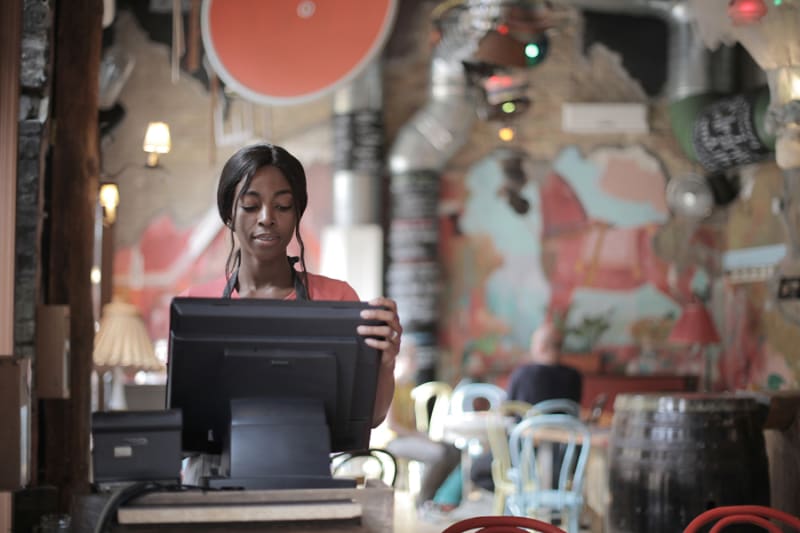You aren’t the only one disheartened with your foiled travel plans owing to the recent pandemic. Restaurants, hotels and other tourist attractions have been unusually empty for months as governments and public bodies raced to contain the spread of the disease.
As the hospitality and tourism industry is beginning to pick up its pieces in Canada, it might be a good time to evaluate the effect of the pandemic on customer priorities and expectations. Understanding these consumer behavior changes can help your hospitality business to adjust to the new normal and thrive once more.
What are the new consumer priorities in the hospitality sector after the pandemic?
The COVID crisis has radically changed our daily lives, including our plans for the future. For many, travel might have become strictly necessary. Many of us might have been forced to cancel our holiday plans and re-evaluate our financial priorities for now.
According to a Deloitte survey, Canadians are spending 20% less on leisure than before the pandemic. 51% of the Canadians are also expected to cancel their trips. An average Canadian is spending 15% less on restaurants and takeout, and 14% less on outside entertainment.
Consumers are also embracing contactless technologies in a huge way, especially in Canada. Most Canadians remain concerned about their exposure to the virus. Hence, they are exploring options like touchless payments, app-based services, self-check-ins and check-outs at airports or retail stores.
This brings us to an important question:
What will the general public now look for in the hospitality industry?
The simple answer is reassurance. Your customers will want to be reassured that your hotel or restaurant won’t risk their health or safety. With mounting household/personal costs in a post-COVID world, they may also expect some sort of financial leeway or discounts.
Here are a few ways to improve your customer service in hospitality and tourism industry.
1. Extend a greater focus on physical hygiene and cleanliness
As the hospitality industry slowly reopens in Canada and the rest of the world, you have to do all you can to put the minds of trepid customers at rest.
Going forth, hotels and other tourism establishments have to focus much more on their sanitation standards to reduce the risk of infection for their customers. The Hotel Association of Canada (HAC) recently released renewed health and safety protocols in May 2020.
These measures include frequent disinfection of common-touch surfaces like staircase railings, doorknobs and light switches. Hotels are recommended to install acrylic shields at concierge desks and liberally equip staff with reliable PPE (personal protective equipment).
Arguably, the increased cost of putting in rigorous sanitation protocols can be compensated with an improved customer satisfaction experience. For instance, restaurants in Vancouver are setting up online applications that tell you the time you need to arrive to find an empty table. This can reduce your waiting time at the restaurant, thereby decreasing your risk of exposure.
2. Actively engage with your customers
In the aftermath of the pandemic, it can be challenging to attract new and old customers to visit your hotel or restaurant mostly while infection remains a risk. It is therefore vital to engage with them actively so that you can allay their fears and win their trust back.
Improved sanitation standards won’t cut the deal all by themselves here. You will have to take the initiative to open a dialogue with your customers on their expectations and your ability to fulfill them.
You can put out informative emailers, social media posts or videos to illustrate that you have your customers’ best interests at heart. A clear, reassuring hype-free tone in your communication is essential to establish an honest and credible relationship with your customers.
3. Trust and credibility should be the backbone of your customer service strategy
Trust and credibility have always been the pillars upholding customer service in hospitality industry. Don’t you always prefer to eat at trusted restaurants or stay at hotels with good reviews? You do.
However, trust and credibility will play a pivotal role in rebuilding your business, especially now when your customers cannot physically check out your services. You have to establish trust with your customers on four different fronts—
- Physical trust that your premises are safe and hygienic,
- Financial trust that you won’t charge them unnecessary expenses to recover your operational costs,
- Digital trust that their information will be secure, and
- Emotional trust that they can expect the same standard of services, even in present circumstances.
Trust and credibility are often underrated in understanding customer satisfaction. In these uncertain times, your customers will remember that you “took care” of them and paid attention to their concerns. This trust in your services will drive your growth and improve customer retention.
An industry-oriented hospitality management degree can bring you up-to-date with all the latest trends and changes in the industry owing to the pandemic. The program can also equip you to handle the dynamic demands of a hospitality career.
The Toronto School of Management (TSoM) offers a wide range of hospitality and tourism management programs catering to diverse career aspirations. The five different diploma and certificate programs can help you become proficient in the requisite skills and understand the importance of customer service in hospitality industry.
Click here to take your pick among the hospitality management programs available at TSoM.


